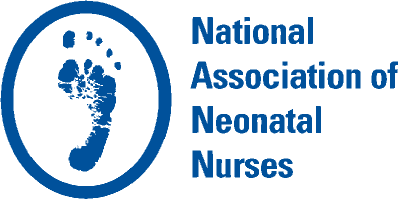Namaste
By Sally Keller, RN BSN
NANN Footprints: Stories from the NICU November 2019
 “Oh my gosh, I am so sorry!” These words slip out of my mouth more often than I care to admit. It seems like nearly every day, I am letting someone down. I missed a deadline. I was late for an appointment. I cut off another driver on the road. I jumped to judgment of a situation that was much more innocent than I assumed. It is so easy to sit and recall all of my errors and mistakes, almost instinctual. Almost as naturally, my mind starts to wonder if I am the only person who makes these blunders? After a few moments in this thought spiral, I’ve convinced myself I am the worst person in the world and no other person has ever made a mistake. While that might be a slight exaggeration, I am sure many of you can relate how easily self-criticism can escalate.
“Oh my gosh, I am so sorry!” These words slip out of my mouth more often than I care to admit. It seems like nearly every day, I am letting someone down. I missed a deadline. I was late for an appointment. I cut off another driver on the road. I jumped to judgment of a situation that was much more innocent than I assumed. It is so easy to sit and recall all of my errors and mistakes, almost instinctual. Almost as naturally, my mind starts to wonder if I am the only person who makes these blunders? After a few moments in this thought spiral, I’ve convinced myself I am the worst person in the world and no other person has ever made a mistake. While that might be a slight exaggeration, I am sure many of you can relate how easily self-criticism can escalate.
We’ve all had blunders and errors in our personal lives. But what if that error has a devastating outcome? As NICU nurses, we are charged with the safety and care of tiny lives. They require careful handling, precise medication dosing, and thoughtfully planned intervention to help them grow healthy and strong. A miscalculation or lapse in judgment may mean the difference between life and death, a quick discharge and months in the hospital, or a good outcome and a lifetime of medical complications. Ethics researchers tell us that a human error is an error, and a miscalculation of a critical medication dose represents the same fault as any other type of mathematical error. However, for most of us, our emotions don’t process the guilt equally when the stakes are as high as a human life. The guilt we place on ourselves, and on each other, as nurses, is a heavy burden to bear.
On my journey of personal growth, I try really hard to avoid judging the errors and challenges of others. I have made a commitment not to tell myself a story about others. I try hard not to jump to conclusions, I resist filling in the details, and I really make an attempt to seek to understand another’s reasoning. Telling tales can be just as harmful when we ourselves are the protagonist. My next objective is to treat myself as I would treat a colleague or loved one.
Compassion is a skill that takes practice. Amazingly, one of the best ways we can learn to be kinder to others is to extend the same kindness to ourselves. When we recognize that faults and errors are part of the universal human experience, we are able to alleviate the isolation of self-judgment. You may be familiar with the phrase “Namaste,” often used in yoga practice. Loosely translated, Namaste means “the sacred in me recognizes the sacred in you,” or often, “the human in me recognizes the human in you.” When we begin to see the common human experience in us all, the triumphs and falls, the celebrations and the errors, we begin to appreciate others and appreciate ourselves. Perhaps, that coworker sitting next to you, or another driver on the road, has made mistakes too. Let’s cut ourselves and each other some slack. Let’s make this world a little softer place to land. Be kind to others; be kind to yourself.
